Studies confirm that regular and daily use of sunscreen with a protection factor of no less than SPF 15 protects you from at least 40% of skin cancer!
How Effective is Sunscreen: Fact or Marketing?
- There is a common misconception that sunscreen is just a product that is heavily marketed with no real benefits for the skin. However, the truth is that sunscreen protects the skin from various dermatological conditions. These conditions and their effects tend to accumulate over time, which means that even if you are only intermittently exposed to the sun, it is essential for all skin types to use sunscreen for protection against:
- Skin cancers.
- Skin aging and pigmentation.
- Photodermatoses (sun-induced skin disorders).
It is important to always protect your skin from the sun's harmful rays, regardless of your skin type. However, people with fair skin need to take extra precautions as their skin is more sensitive and vulnerable to sunburns and other negative effects caused by UV radiation. Therefore, it is highly recommended for individuals with fair skin to use sunscreen with a higher SPF and limit their sun exposure, especially during peak hours when the sun is most intense. By taking these necessary steps, you can help reduce your risk of developing skin damage, premature aging, and skin cancer.
Therefore, the sun protection factor (SPF) should not be less than 30, and it should be applied generously to all sun-exposed areas of the body, equivalent to at least 9 tablespoons.
Therefore, it is advisable not to neglect sunscreen, especially in the following cases:
- Working for continuous hours in sun-exposed areas.
- Living in high-temperature regions.
- If you are using medications or treatments that increase photosensitivity, such as acne medications and certain antibiotics.
Mistakes to avoid when applying sunscreen
If you are looking to maximize the benefits of sunscreen, avoid the following mistakes and follow medical recommendations:
- Not reapplying sunscreen: Sunscreen should not be applied only once during the day. Attention should be paid to the following:
- Apply sunscreen 15-30 minutes before sun exposure.
- Wait at least 10-20 minutes for the sunscreen protective layer to form before covering the skin with clothes or other items.
- Reapply sunscreen every two hours at least.
- Reapply sunscreen after sweating or exposure to water, even if it is water-resistant.
- Insufficient amount of sunscreen: Did you know that the ideal coverage for all sun-exposed parts of the body, especially in highly sunny areas like the beach, requires at least a cup of water, about 30 milliliters? That's about 6 tablespoons for an adult's body!
It is important to apply sunscreen generously to all parts of the body that are exposed to the sun. As a general rule, you should use two tablespoons of sunscreen for the face and neck, and the same amount for the back and torso. For each arm and leg, use one tablespoon of sunscreen, and don't forget to apply it to your hands and feet.
- Inadequate sun protection factor (SPF): You may have followed all the above but still not notice the benefits of sunscreen. In this case, it is recommended not to use sunscreen with an SPF of less than 30.
What is the best sunscreen?
Here are some tips to help you choose the best sunscreen specifications:
- Choose an appropriate sun protection factor (SPF): Since the amount of UVB radiation reaching the skin through sunscreen decreases almost linearly with the increase in SPF value, an SPF 30 sunscreen provides almost double protection compared to SPF 15 in preventing skin redness caused by the sun.
- Choose a sunscreen with multiple filters: The effectiveness of a sunscreen depends on how efficiently it filters out the sun's rays. For better understanding, it is preferred to use broad-spectrum sunscreens that protect against UVB, UVA2, and UVA1 rays, rather than those that protect only against UVB rays, even if they have a high SPF. By choosing broad-spectrum sunscreens, you can ensure that your skin is well-protected against skin cancer and premature aging.
But how do I distinguish broad-spectrum sunscreens? Simply choose products known for their efficiency and from trusted selling centers such as pharmacies. Ensure they contain effective ingredients for filtering harmful rays, whether organic or inorganic, such as:
- Avobenzone: organic Like:
- Zinc oxide: inorganic
- Titanium dioxide: inorganic
Is Sunscreen Safe for Children & Infants?
The answer to whether or not you should apply sunscreen to a child's skin depends on several factors. If the child is less than six months old, it is not recommended to use sunscreen on their skin. Instead, make sure that their exposed body parts are covered by the sun. If adequate coverage is not possible, you can use a non-organic sunscreen that contains zinc oxide or titanium dioxide. Apply it in very small amounts of suitable pediatric sunscreen on the face, neck, hands, and feet, ensuring that it does not cause any irritation or sensitivity to the child's skin.
Is there a difference between lotion and cream sunscreen?
The difference lies only in their consistency; lotion is usually lighter and, therefore, easier to apply, especially on large body parts. examples on body sunscreens:
Pharmaceris Hydro Lipid Spf50+ Body Lotion
Is tinted sunscreen less effective?
Tinted sunscreens may offer better sun protection than regular ones. In addition to UV filters, they also contain a combination of titanium dioxide (which is white) and iron oxides (which come in shades of yellow, red, and black), providing protection against various types of UV rays, including UVA1 and visible light. These sunscreens are available in a range of shades suitable for all skin types.
Should You Use Sunscreen Indoors?
Why not! Especially if the skin is exposed to radiation. Here, we recommend using sunscreen with an SPF of 15.
Does Sunscreen Block Vitamin D Absorption?
If you want to get your daily dose of vitamin D from sunlight, it's best to expose yourself to the sun's rays during the cooler times of the day, before 10 am or after 4 pm. However, if you expose yourself to strong and direct sunlight, especially during peak hours (when the sun is highest in the sky), you could be at risk of harmful radiation. This can lead to skin redness, burns, premature aging, and even cancer. It's important to protect yourself from excessive sun exposure and to take precautions such as wearing protective clothing, using sunscreen, and seeking shade where possible.



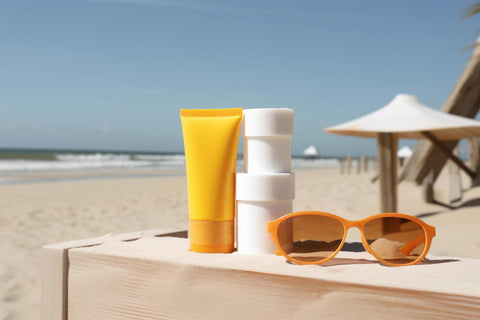
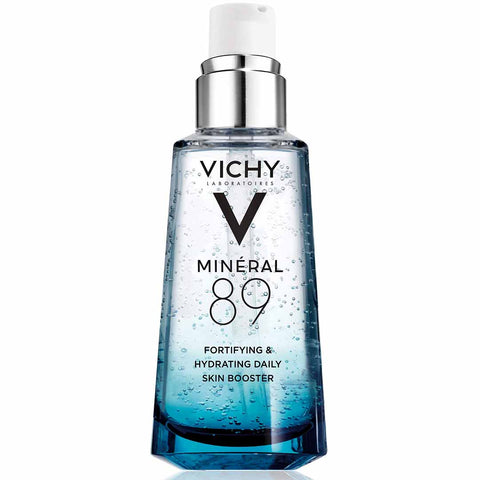

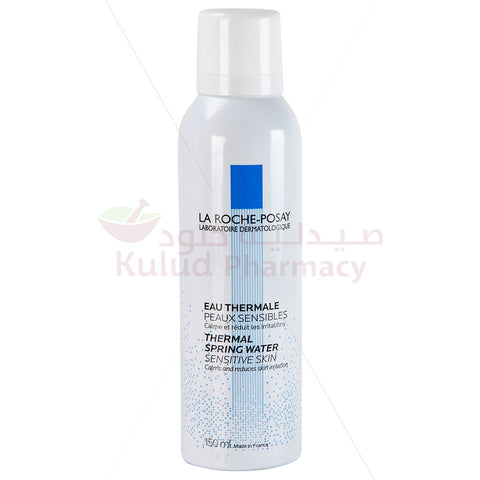
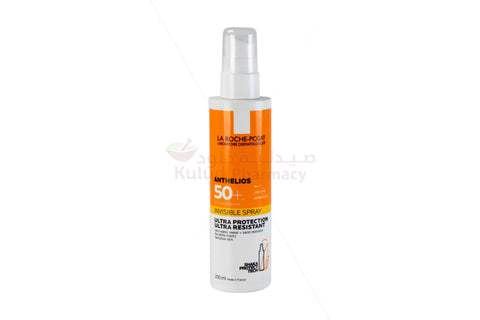
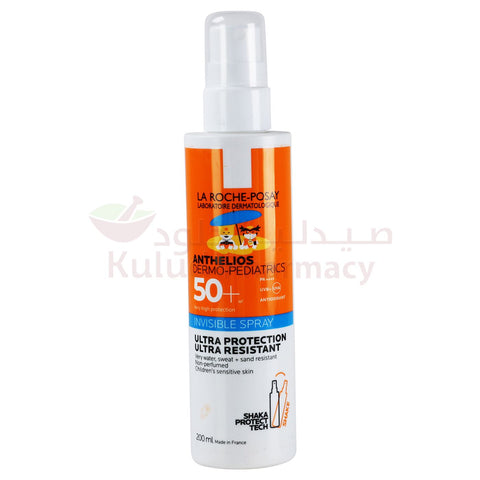
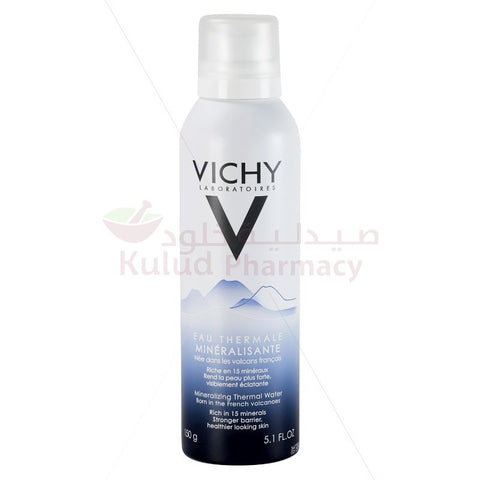
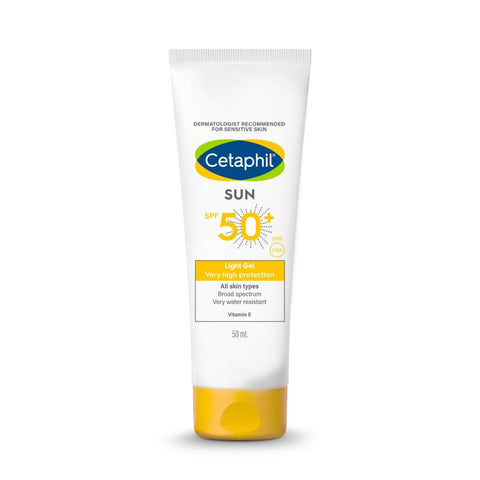

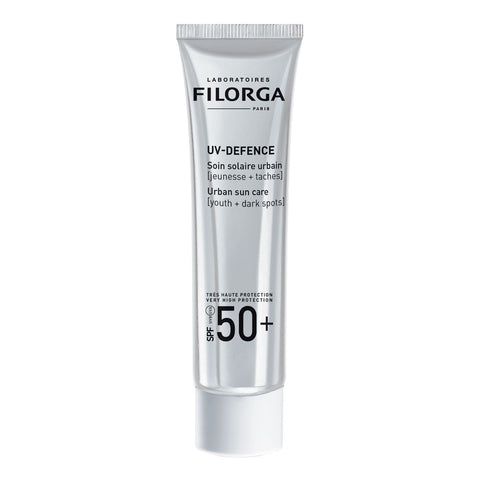



Comments (0)
There are no comments for this article. Be the first one to leave a message!